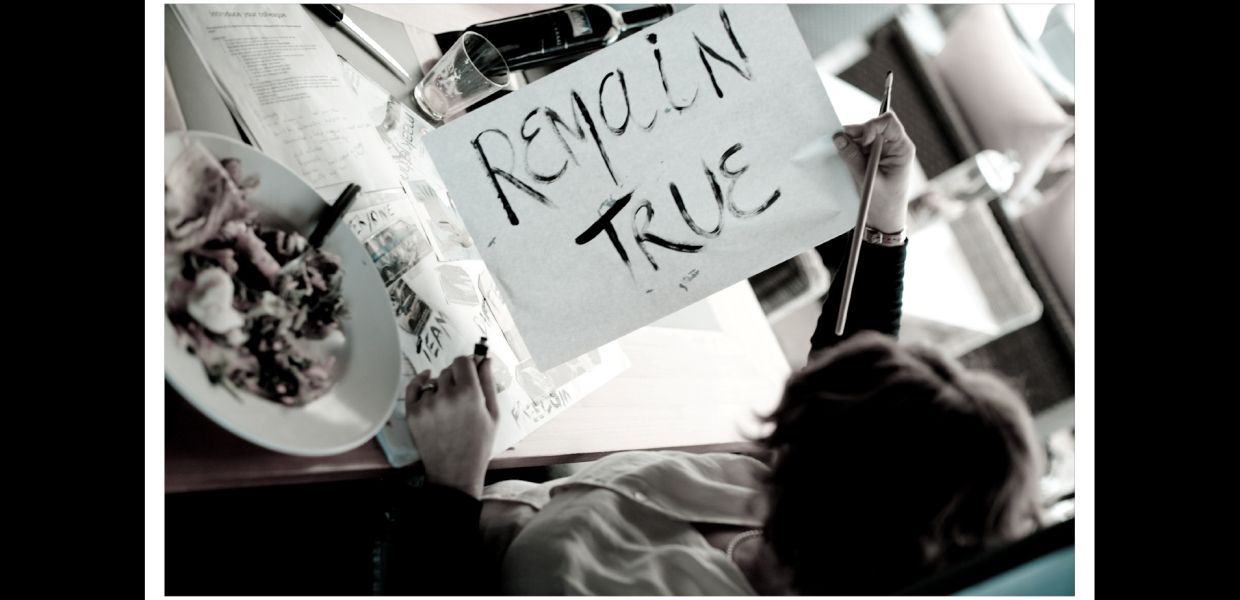Europeana Foundation announces departure of Executive Director Jill Cousins
The Europeana Foundation Governing Board today announces the resignation and departure of its founding Executive Director, Jill Cousins.

- Title:
- Jill Cousins, Remain True.
- Creator:
- Harry Verwayen
- Date:
- 2010
- Institution:
- Europeana
- Country:
- The Netherlands
- Copyright:
- CC BY-SA
16 March 2018, The Hague
Jill Cousins set up and led Europeana as the Executive Director of its governing Foundation since its beginnings in 2005/6, based on her work with the Conference of European National Librarians (CENL) to create The European Library in 2004.
Since the launch of the Europeana website in 2008, it has grown into a platform for the use and reuse of over 50 million cultural heritage items from across the whole of Europe and beyond. In 2012, Jill led a campaign to allow the metadata used to describe collection items to be made available under the terms of the Creative Commons CC0 1.0 Universal Public Domain Dedication (CC0). This was by far the largest one-time dedication of cultural data to the public domain, described at the time as ‘a coup d'etat for advocates of open cultural data’.
In the quest to make cultural heritage relevant for everyone, Jill borrowed an idea from Oxford University to create Europeana 1914-1918 with its family collection days across Europe. Combined with institutional collections, this is the world’s largest archive of digital World War One material. More recently, she has started a similar endeavour with Europeana Migration, aimed at showing that we are all products of multicultural influences and that Europe’s cultural heritage is richer as the result of movements of people and ideas.
Behind Europeana is a network of organisations and individuals spanning the cultural heritage and technology sectors, working towards a common goal, spearheaded by Jill Cousins - to transform the world with culture. The Europeana Network started as a means of sharing knowledge and development and has grown into an Association of more than 2,000 dedicated and active members which regularly shouts out for the importance of cultural heritage to society and democracy.
Jill Cousins says:
‘Looking back there are many things I would want to have done better but I am very happy with the progress we made on the standardisation and interoperability of Europe’s digital cultural heritage because in doing so we have democratized access for everyone and made the material truly usable for education, research and the creative industries. This has been the ultimate joint effort - a really collaborative, commons endeavour, from so many selfless individuals who have dedicated their time and effort to showing that culture makes Europe borderless. #AllezCulture et merci à tous.’
Elisabeth Niggemann, Chair of the Europeana Foundation Governing Board, says:
‘The Europeana Foundation Governing Board is enormously appreciative of and inspired by all the work Jill has done over the years to transform the world with culture. We wish her every success in her new role and will miss her drive, her innovation and her infectious enthusiasm.’
Jill will now take on a new challenge, leading the Hunt Museum in Limerick, Ireland, and continues to make our cultural heritage work across international borders as Chair of RightsStatements.org.
The Europeana Foundation Governing Board is currently interviewing candidates for the role of Executive Director and has announced Harry Verwayen as the Acting Executive Director of the Europeana Foundation in the interim, effective immediately.
ENDS
Media contact
Eleanor Kenny - Europeana Foundation
E: Eleanor.Kenny@europeana.eu
About Europeana
Europeana is Europe’s platform for digital cultural heritage with a mission to ‘transform the world with culture’. Europeana Collections is Europe’s digital library, museum, gallery and archive. From books, photos and paintings to television broadcasts and 3D objects, Europeana Collections provides online access to a vast store of cultural heritage material from across Europe for everyone to find, use and share: for research, for learning, for creating new things. (@EuropeanaEU)
About The Hunt Museum
The Hunt Museum is one of the greatest private collections of Art and Antiquities dating from Neolithic Period to the 20th Century on public display in Ireland today. Generously donated by John and Gertrude Hunt this diverse collection is housed in Limerick’s 18th century Palladian style building, formerly The Custom House. The Hunt Museum collects, exhibits, preserves, documents and promotes the Hunt Collection to maximise its cultural and educational potential for the people of Limerick, Ireland and across the globe. The Hunt Museum receives support from the Department of Culture, Heritage and the Gaeltacht and Limerick City and County Council.
Europeana DSI is co-financed by the European Union’s Connecting Europe Facility.

